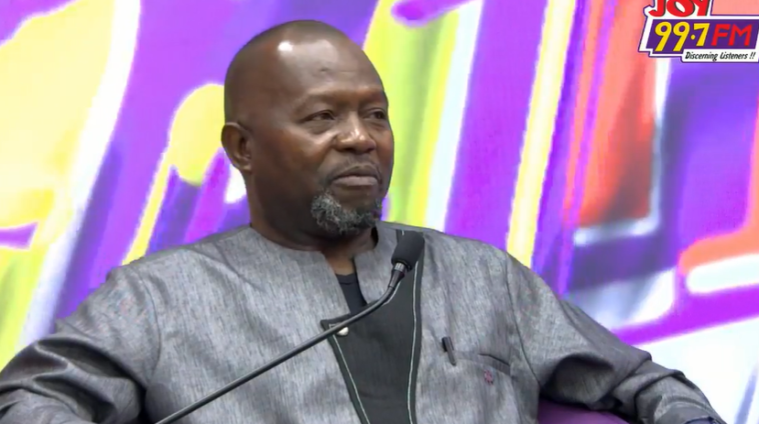A former Deputy Attorney-General, Dr Dominic Akuritinga Ayine, has asserted that the Constitution does not guarantee any immunity whatsoever to Members of Parliament against arrest.
Speaking on the Super Morning Show on Thursday, November 4, 2021, he clarified that the Constitutions accords MPs a privilege to facilitate their work as well as prevent instances of external interference in the discharge of their duties.
"Parliamentarians are not above the Law; neither are we outside the Law. In fact, the constitutional provision is very clear. We are accorded privileges, not rights.
"We don't have a right not to be arrested but we have a privilege not to be arrested in the course of the performance of our duties," he said.
The comment comes in the wake of the tussle between the Legislative arm of government and the Ghana Police Service over the attempted arrest of the MP for Madina, Francis Xavier-Sosu.
The Madina MP is being sought by the Police after he joined his Constituents to protest against bad roads in the Constituency. A protest which turned chaotic with car tyres being set ablaze amid roadblocks.
During the protest, there was an attempt to arrest Mr. Sosu, but he resisted the arrest and subsequently filed a case of contempt of Parliament against the said police officials. Currently, the Ghana Police Service has officially filed charges against the MP.
This has sparked public discourse over whether or not an MP can be arrested, with a section of the public citing article 117 as grounds for the MP not to be arrested. But wading into the discourse, Dr Ayine stated categorically that there's no law that protects MPs from being arrested unless the arrest will affect the functions of the House.
"Parliament is the heartbeat of every democracy and every functioning democracy must ensure that MPS, efficiently execute their duties without interference, especially in the context of the relationship between the Police and Parliament."
"If you look at the Legislature and the Executive arm of government under which the Police falls, you'll understand that there may be times when the Executive branch may abuse its powers unduly by interfering in the functioning of the Legislature in order to gain some political mileage.
"So the drafters of the Constitution thought that it is important that we constitutionalise these privileges in order to insulate Parliament from external interferences. These are the reasons behind the privileges and immunities accorded to us under the Constitution," he clarified.
Latest Stories
-
I want to focus more on my education – Chidimma Adetshina quits pageantry
3 hours -
Priest replaced after Sabrina Carpenter shoots music video in his church
3 hours -
Duct-taped banana artwork sells for $6.2m in NYC
3 hours -
Arrest warrants issued for Netanyahu, Gallant and Hamas commander over alleged war crimes
3 hours -
Actors Jonathan Majors and Meagan Good are engaged
3 hours -
Expired rice saga: A ‘best before date’ can be extended – Food and Agriculture Engineer
3 hours -
Why I rejected Range Rover gift from a man – Tiwa Savage
3 hours -
KNUST Engineering College honours Telecel Ghana CEO at Alumni Excellence Awards
4 hours -
Postecoglou backs Bentancur appeal after ‘mistake’
4 hours -
#Manifesto debate: NDC to enact and pass National Climate Law – Prof Klutse
4 hours -
‘Everything a manager could wish for’ – Guardiola signs new deal
4 hours -
TEWU suspends strike after NLC directive, urges swift resolution of grievances
5 hours -
Netflix debuts Grain Media’s explosive film
5 hours -
‘Expired’ rice scandal: FDA is complicit; top officials must be fired – Ablakwa
6 hours -
#TheManifestoDebate: We’ll provide potable water, expand water distribution network – NDC
6 hours

